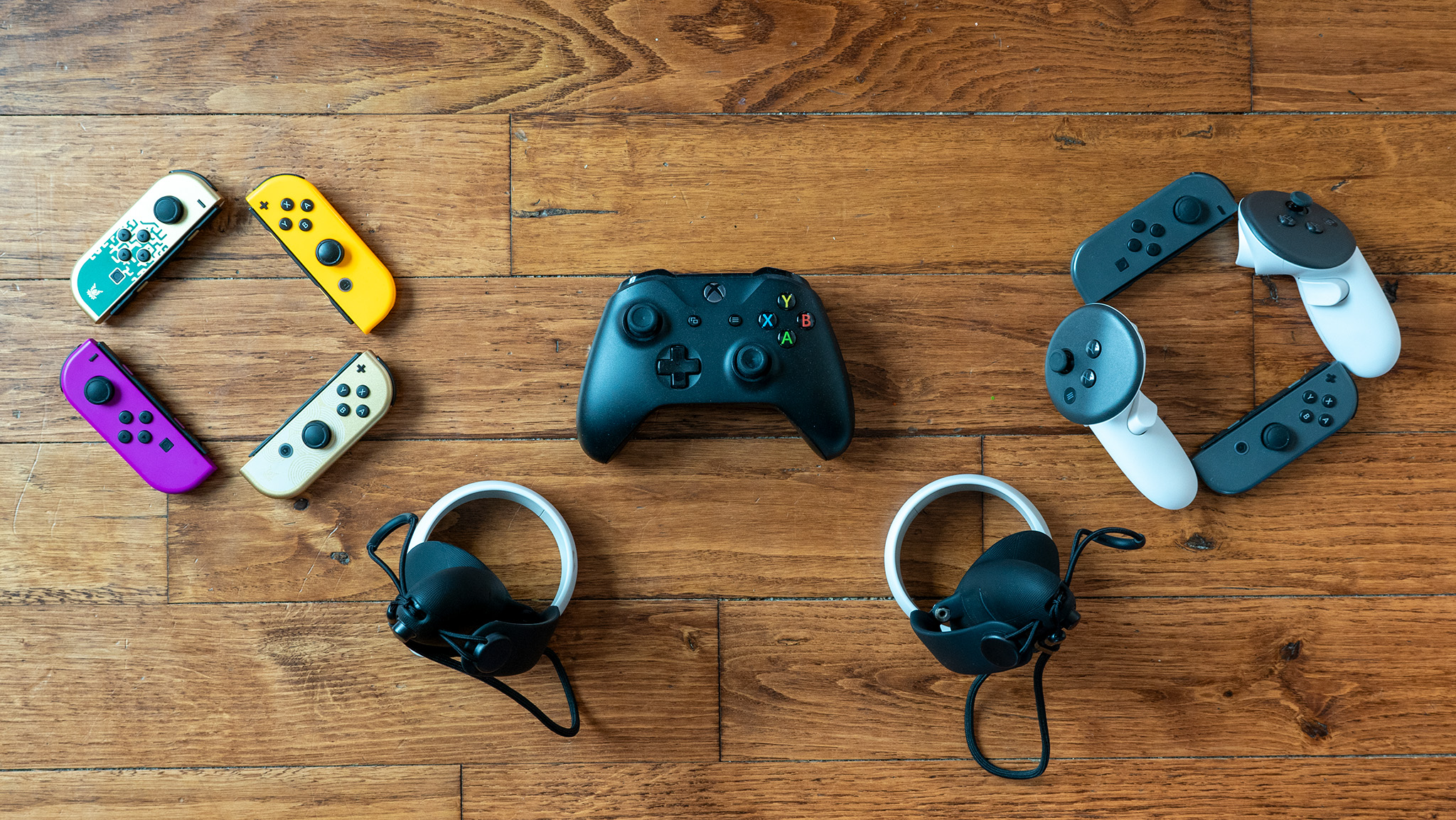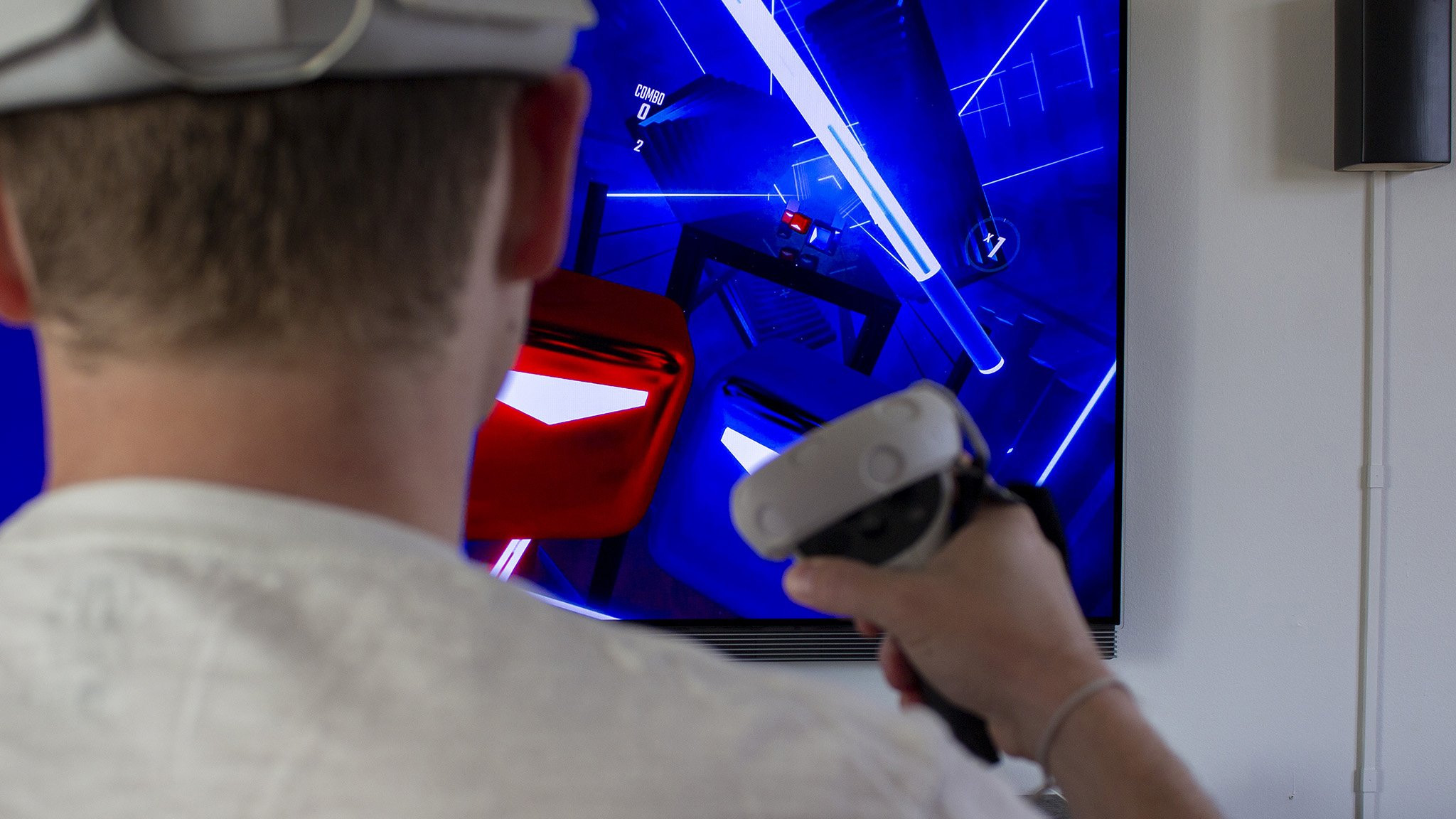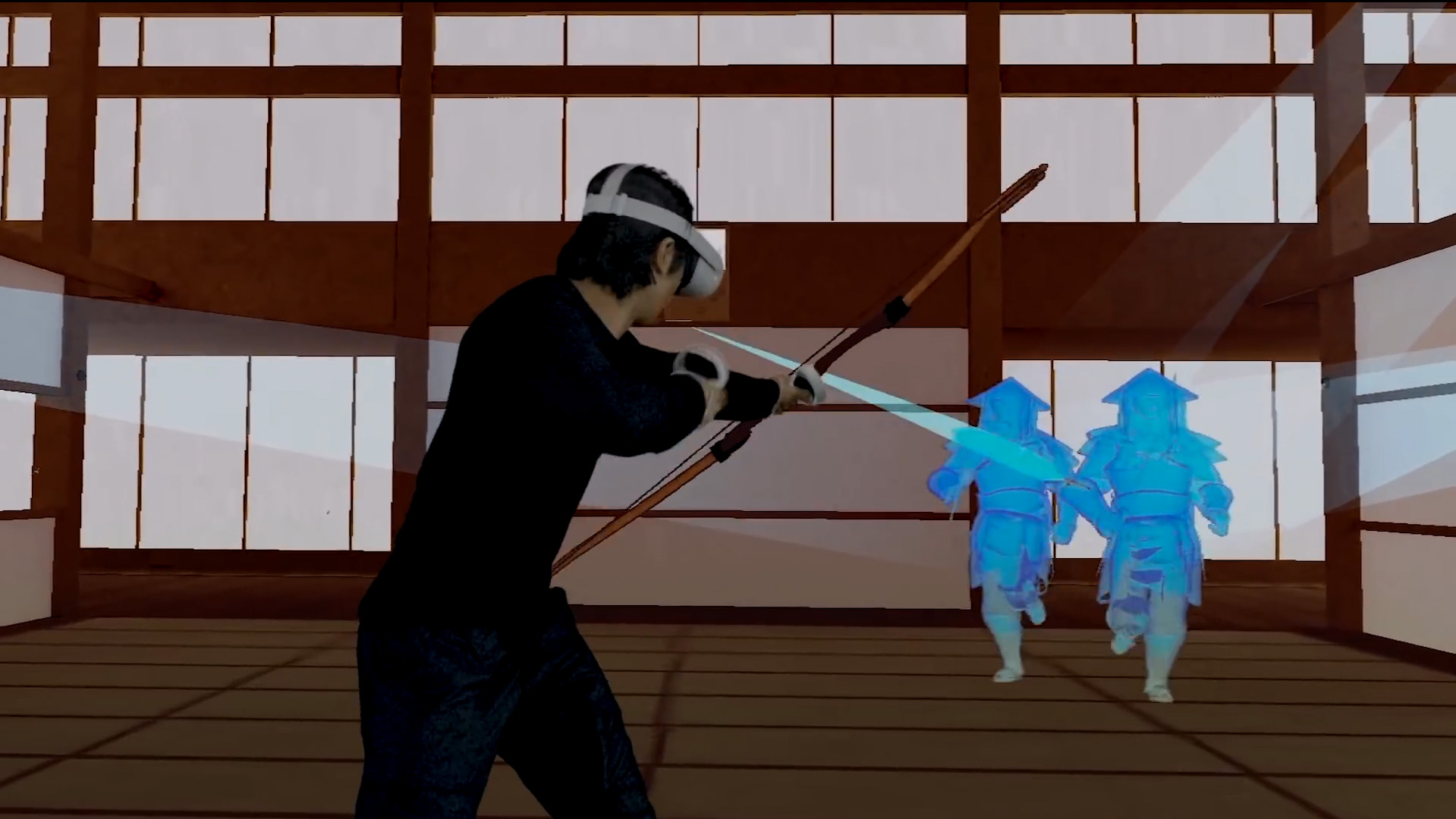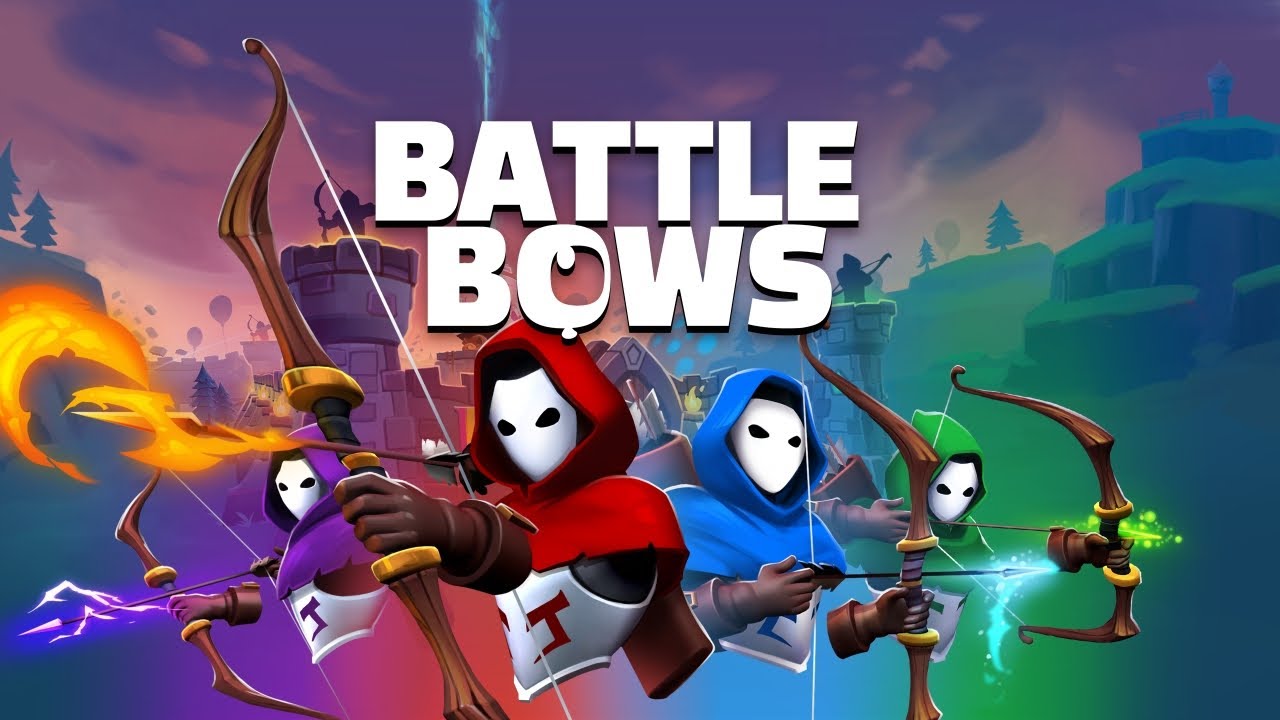This is what it'll take to make esports a real Olympic event
With the advent of the Esports Olympic Games, the IOC has a chance to push the envelope even further.

Just a few days before the 2024 Paris Olympic Games began, rumor had it that this would be the first Olympic Games with an esports competition. If you're not familiar with the term, esports are video games played in a highly competitive way, often spawning tournaments with televised games similar to traditional sports.
The idea of having video games at the Olympics—a venue for more traditional sports where players have to be physically athletic—created a very mixed reaction across the world. Esports athletes were thrilled, but there was plenty of concern that the International Olympic Committee (IOC) was dumbing down the event in order to appeal to younger audiences. However, I disagree and propose that esports could make it to the actual Olympics if VR games were adopted as the official medium.

In his weekly column, Android Central Senior Content Producer Nick Sutrich delves into all things VR, from new hardware to new games, upcoming technologies, and so much more.
Like the Paralympics, the new Olympic Esports Games will be a completely separate event from the main Olympics. The first Olympic Esports Games will be held in the Kingdom of Saudi Arabia starting in 2025, with the National Olympic Committee (NOC) of Saudi Arabia agreeing to host the event for the next 12 years.
The IOC hasn't announced the exact games that'll be played at the event just yet, but the inaugural Olympic Esports Series 2023 featured chess, dancing (via Just Dance), shooting (via Fortnite), racing (via Gran Turismo), and several others.
We've already seen the International Table Tennis Federation adopt VR table tennis as a recognized competitive sport. While it's a perfect shoo-in for the upcoming Olympic Esports Games, I can think of several examples that would not only fit perfectly in the highly aestheticized proper Olympics but would also make Olympic broadcasting even more interesting.
Serious physical athleticism

One of the biggest reasons for the big VR boom during COVID was because of at-home fitness. Apps like Supernatural had people wondering if it was worth the $20 per month subscription cost and the obvious answer at the time was yes.
Supernatural was the best way to get a workout at home because it gave you access to real coaches with different workout routines each and every day of the week. It was the gym away from your normal gym.
Be an expert in 5 minutes
Get the latest news from Android Central, your trusted companion in the world of Android
But players quickly found out that apps like Beat Saber, which features plenty of similar mechanics to Supernatural, offer on-demand song variety and vigorous, physically demanding gameplay that also gives them a workout.
SteamVR had to be updated to keep up with Beat Saber players' speed because they were moving faster than originally thought possible.
In fact, just a year prior, Valve had to update SteamVR's movement tracking code because gamers were moving faster while playing Beat Saber than was previously thought physically possible. If that doesn't scream "Olympic athlete material," I don't know what does.
And if the folks who broke those expectations can be found in ordinary homes, imagine what trained Olympic-grade athletes could do? Android Central's Michael Hicks recently explored the idea of trying to "compete" with Olympics athletes in some track and field events and found the task to be hilariously impossible.

Some Olympic athletes have been using VR to train for years, giving more credit to the medium's ability to push physical athletics.
You might also be surprised to know that some Olympic athletes have been using VR to train for years. Mikaela Shiffrin trained in VR for the 2018 Pyeongchang Winter Olympics. I spoke with Rolf Illenberger, the founder and CEO of VRdirect, a company that specializes in building VR software for big companies, about the potential of NBC or the IOC to use VR for the upcoming Games.
"Olympic organizers want to tap into a younger audience," said Illenberger. "Olympic broadcasters want to find new and innovative ways to capture viewers. Olympic athletes want to win medals. It’s not in-your-face from a marketing standpoint, but the Olympic world has begun a full-embrace of VR tools."
Given that the next Summer Olympics are scheduled to be in Los Angeles in 2028, it seems like the perfect time to showcase America's leadership in VR in the same state as Silicon Valley.
Better than real

All Olympic sports at games like the 2024 Summer Olympics in Paris require years of training, intense effort, and an undeniable set of seemingly superhuman skills in order to compete. As Hicks pointed out in his post, trying to beat even the folks who don't qualify for the finals is simply impossible for any normal person.
But there are several sports that just aren't particularly fun to watch. Archery and shooting events in the Olympics are a great example. The never-ending memes of champion shooters are incredible but watching the actual event on television is rather... dull.
That's because the camera angles and the "action" simply don't translate well. Olympics archers shoot at targets up to 70 meters away (~230ft), aiming for a bullseye that's a mere 12cm in diameter. That kind of accuracy is pure insanity, but none of it looks particularly "difficult" when watching on TV. All you see is someone holding an arrow for a little while next to a zoomed-in image of the target.
VR Olympic games could open up a pathway to even more exciting broadcasting.
A lot of this is because of pure physical limitations. You can only use so many cameras for an event of this kind. Targets can't easily move around or be presented in different ways because any kind of mechanical failure would cause problems for would-be medal winners. I could go on for a while, but I think you understand the point.
That's where a VR Olympic archery event could easily differentiate itself from the physical one. Games like Holopoint and Battle Bows perfectly embody what I imagine a VR Olympic archery event could be. Everyone starts in the center of a dojo and is presented with a set number of targets that move around the arena. Targets are scored based on how long it takes you to hit them and, obviously, how close you get to the center.
Watching an event like this with virtual cameras would be akin to watching a movie, presenting an archery event that could easily make the primetime segment where events like gymnastics, swimming, and track & field currently dominate. We could get angles impossible for real cameras, the ability to move cameras through space at any angle that makes sense, instant replays from any angle, etc. It's a director's dream come true.

New and unique sports could make debuts at future Olympic Esports events if given the chance.
It could also open up the avenue to new sports or entirely different variations on existing sports. Fencing is a popular Olympic sport and is arguably one of the more exciting ones to watch, even on TV, but VR sword fighting could open that up to entirely different types of weapons. No one wants the Olympics to be a bloodbath, so this would be the only way additional weapons could be a part of the ceremonies.
This is the ideal way for the Olympics to appeal to the next generation in new and exciting ways, bringing the love of video games and digital media to the historic glory of the Olympic Games. And Illenberger agrees, too. "With LA, the convergence of tech, content and creator will be more emphasized in my opinion," he says. "The market opens itself up for it."

You must confirm your public display name before commenting
Please logout and then login again, you will then be prompted to enter your display name.
